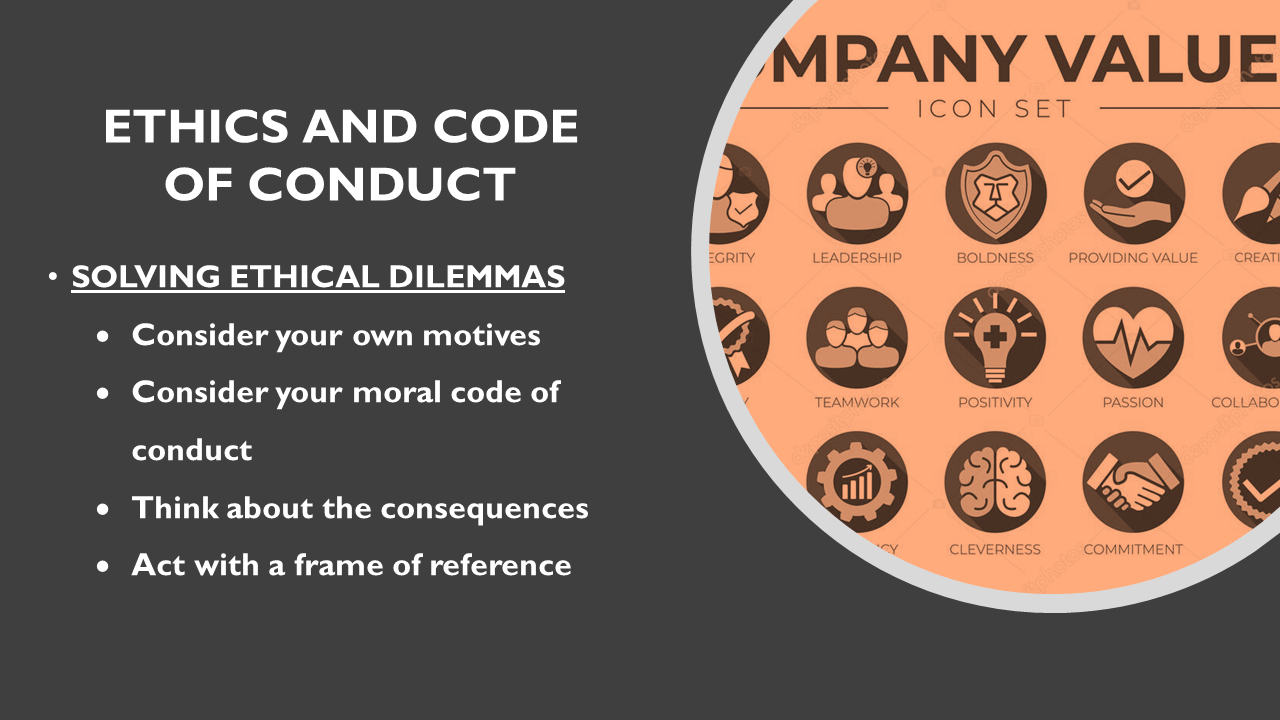Click here to view a video that explains navigating confidentiality in the workplace.
Click here to view a video that explains confidentiality in the workplace.
Ethics refer to the distinction between right and wrong. Ethical behaviour will imply that the person evaluating the facts will choose the right thing and therefore behave in an ethically acceptable manner.
An example of the Code of Conduct for the Accounting Industry
Five fundamental principles of professional ethics are identified.
- Integrity
- Objectivity
- Professional competence and due care
- Confidentiality
- Professional behaviour
Under the framework, all professional accountants will be required to identify threats to these fundamental principles and, if there are threats, apply safeguards to ensure that the principles are not compromised.
Even though ethics appears to be straightforward and obvious, it can be a challenge to apply ethical behaviour in modern society. The standard of functioning of individuals may be lowered due to the rationalization and intellectualization of cognitive patterns. Individuals can easily create ‘’acceptable’’ reasons for their behaviour. This might however sometimes result in an ethical dilemma. The moral development of people might lead to a difference in opinion, which in turn colours the ethical answer in nice words and good excuses.
Solving Ethical Dilemmas
When an individual or an organisation is confronted with an ethical dilemma, a specific process of analyzing, interpreting, evaluating and critical thinking must be followed.
The following steps must be implemented to assist in finding a solution and an ethical outcome:
Consider your own motives: The individual(s) involved should attempt to make a distinction between their motives and their decision. The consequences to the involved parties should be taken into account, rather than the personal feelings or opinions in this matter.
Consider your moral code of conduct: An ethical dilemma can only arise if the individual struggling with the information has a moral conflict of interest and has developed a system of right and wrong. It may be constructive to investigate what the conscience is saying. This may give direction to solve the ethical dilemma.
Think about the consequences: Spend time analyzing the possible outcomes of the ‘’right’’ and the ‘’wrong’’ options. Consider whether hurt, blame and emotional damage will be suffered unjustly. It is also advisable to consider any secondary parties that might be involved in this ethical dilemma. Also, consider any secondary parties involved and the consequences that your decision will have on them.
Act with a frame of reference: The cultural, spiritual and individual aspects of your level of functioning must be taken into account when coming to conclusions with regards to ethical issues. Company guidelines, specific legislation and even spiritual maturity must be taken into account. The individual’s own values, experiences and objectives will also influence the decision.
